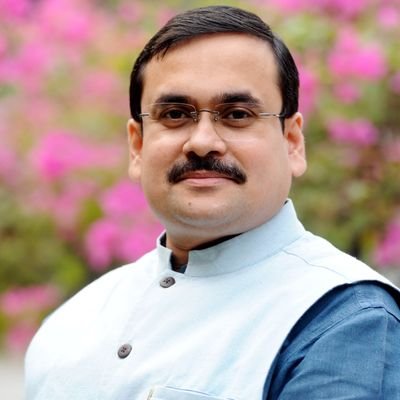India’s premier and oldest agency for furthering her soft power, the Indian Council for Cultural Relations (ICCR), is faced with an acute crisis of resources. The challenge is serious and yet it does not seem to have moved the powers that be. In terms of resource allocation, the ICCR, acknowledged as the ‘Government of India’s primary arm for projecting India’s soft power and earning goodwill’ has continued to stagnate.
In fact, trends reveal that the last active expansion phase for the ICCR was in 2009, when it had succeeded in opening seven new Indian Cultural Centres worldwide. Since then, successive Parliamentary Standing Committees have lamented the reduced and standstill allocation of funds to this principal agency for India’s cultural diplomacy. The ICCR was launched with the objective of developing into a main instrument for furthering India’s cultural power. The aim was to reactivate linkages with those civilisations and people who had once been open to and active in assimilating India’s culture and her traditions.
The ICCR was one of the first agencies to take off as early as 1950 with this lofty objective. Addressing its inaugural function on 9th April 1950, post-independent India’s first Prime Minister Pandit Jawaharlal Nehru had emphasised this pre-eminent cultural role when he said that he ‘always looked forward to furthering the cause of India’s cultural association, not only with the neighbouring countries to the East and West but with the wider world outside.’ For Nehru, this reaching out to the world culturally was crucial, it was essential if India was to again regain her cultural spaces across the globe and especially in her immediate vicinity, ‘it is not a question of merely wanting such cultural association or considering it good’ Nehru pointed out, ‘it is rather a question of the necessity of the situation which is bound to worsen if nothing is done to prevent it.’
To see an organisation, in which was reposed such high hopes and aims, languish because of lack funds is a stark reflection of our lack of resolve to evolve a cultural strategy for Indian diplomacy. The twentieth report of the Standing Committee on External Affairs Demand for Grants 2013-2014 paints an unflattering picture of the financial state of affairs of the ICCR. Against the budget demand of Rs.282.50 crore, only Rs.160 crore has been allocated to ICCR. The Indian Foreign Secretary in course of his testimony before the House Committee has accepted that due to this repeated shortfall over the years ‘many of the Cultural Centres abroad are facing problems … and even many programme [and] activities of ICCR are suffering.’
This cash crunch has hit the agency most in its international outreach and commitments. The ICCR has decided to become the partner institution in 2013 for the prestigious Europalia festival held in Belgium and supported by the Government of Belgium and a consortium of companies, museums and art institutions. The Europalia festival offers a great opportunity to show case one’s own culture and throws up possibilities of conceiving and launching collaborative ventures with other museums and cultural institutions in other countries in Europe. The occasion could have turned, if seriously supported by Government resources, into a unique opportunity for projecting India’s thriving and fascinating cultural power in the heart of Europe. An invitation to these could have been turned into a positive opportunity to forge lasting cultural ties with other leading cultural institutions. But the occasion and its possibilities are being squandered away because the ICCR ‘has received no additional budgetary support’ for its initiative in partnering the Festival. While the idea of seeking other sources of funding, mainly from corporate India, is gaining ground and the Committee itself has asked the External Affairs Ministry to look into such possibilities in the future, the Government of the day cannot abdicate its principal responsibility in furthering globally the essence of India’s culture. Such an abdication, if it happens, shall be a retrograde step for India’s cultural power and its global potential.
Understandably the Ministry has raised an alarm at what it terms a ‘drastic reduction in allocations.’ Until 2009, the ICCR was upbeat about its worldwide expansion activities. That year it opened seven new Indian Cultural Centres in Asia – in Kabul, Kathmandu, Bangkok, Tokyo, Dhaka, Kuala Lumpur and Abu Dhabi. The same year saw the earmarking of a building in Washington to house the Indian Cultural Centre. The Washington Cultural Centre is yet to take off and other Centres are facing the brunt of lack of resources.
Coming down to 2012-2013, the pace appears to have heavily slowed down and questions of even running the existing centres have cropped up. The Ministry, in its reply to the Committee, pointed to the uncertain future of India’s cultural wings abroad. Explaining the surplus expenditure incurred by the ICCR, the Ministry pointed out that, ‘Closing down these Cultural Centres, Chairs and Regional Offices would send a wrong signal to the outside world putting India in an embarrassing position. The excess expenditure was therefore unavoidable, thought it was minimized by reducing several activities ….’
The plans for reaching out to newer regions, particularly the Caribbean, Latin American and African countries seem to have been put on hold. Its entire national as well as global expansion programme has been subjected to availability of funds, the Ministry’s note to the Parliamentary Committee indicated as much: ‘ICCR has also directed to open new Indian Cultural Centres in Buenos Aires (Argentina), Santiago (Chile), Lagos (Nigeria) and Nairobi (Kenya). In addition, ICCR has also six new Centres in the pipeline which include Washington, Paris, Toronto, Sydney, Hanoi, Singapore. However, opening of these new Centres although already committed, would be subject to availability of funds.’ In effect it means that India’s attempt to develop a dynamic roadmap for the expansion and projection of her soft power will continuously remain hostage to the non-availability of resources. It is evident that there is a total lack of focus and will, when it comes to utilizing India’s vast cultural resources to further her global power objectives.
The Standing Committee noted with great concern the state of affairs and has recommended to the Ministry to ‘enhance budgetary allocation’ for the ICCR ‘in view of emerging contours of cultural diplomacy.’ The Committee also noted that it was ‘essential to expand the network of Indian Cultural Centres and establishment of chairs abroad’ but this appears to be a tough call with the drying up of resources. The Committee flagged the crisis when it further stated that ‘with the funds allocated to ICCR, they are not even able to manage the established Centres outside India, then how can they think about new centres?’ While there is endless talk and clichéd references to the potentials of India’s soft power and how Indian culture had once permeated the world and can do it once more, little serious collective effort seems have been made on the ground to save and energise institutions that are mandated for spreading and popularizing that soft power.
In the meantime, a cultural hegemonist looms large and grows in our neighbourhood, a country that is determined to push through globally its image, way of life and belief. Through its formidable chain of Confucius Institutes (CI), China is making entry into world academia and cultural institutions. As of 2012, there were more than 400 CIs in 108 countries and regions. It has also been estimated that more than 500 Confucius classrooms with more than 600,000 registered students function across the globe. 70 of the world’s top 200 universities have already opened their CIs. The Hanban’s stated global target is to have 1000 CIs in operation by 2020. It is not the case that India should replicate or compete with such efforts in its own way. The CIs, which in any case do not reflect the essential Confucian culture and directions of Chinese civilisation, have, of late, come under the scanner for their espionage objectives and subtly pushing forward the CPC’s political agenda. In fact, a number of universities in the West seem to be having second thoughts on allowing the entry of CIs in their campuses. China’s determined projection of its soft power and the huge resources that it has made available for the purpose – it has been accepted that funding has been a major reason for universities agreeing to tie up with the Chinese government in opening CIs – is an example of what we shall eventually be faced with in the future if our pace of cultural outreach and expansion slows down.
The Indian Cultural Centres, with their open cultural agendas and programmes can in the long run be a greater attraction than tightly controlled and propagandist CIs. A long term view of the role of India’s Cultural Centres abroad, a far reaching plan for their sustenance, functioning and popularisation, a proactive effort to enlist a vast array of support for these initiatives are what need to be looked at urgently if the ICCR is to be saved and its mandate salvaged, otherwise we risk losing the race for reactivating our civilisational and cultural linkages.
A celebrated Indian sociologist and historian, a scholar of the nationalist school, Benoy Kumar Sarkar (1887-1949) in his treatise on the ‘Beginning of Hindu Culture as World Power (A.D. 300-600)’ (Shanghai, 1916) had made an interesting point, when he said Hindus possessed a vibrant ‘world-sense’ which attracted a continuous stream of representatives from other civilisations. It was this unique ‘world-sense’ that was a distinguishing characteristic of Indian civilisation, argued Sarkar.
Ironically, we seem to be frittering away and blunting that sense today and remain oblivious to its long term implications.
Published Date: 25th June 2013
Image Sources: http://media2.intoday.in/indiatoday/images/stories/iccr_logo_350_020612050725.jpg










Post new comment